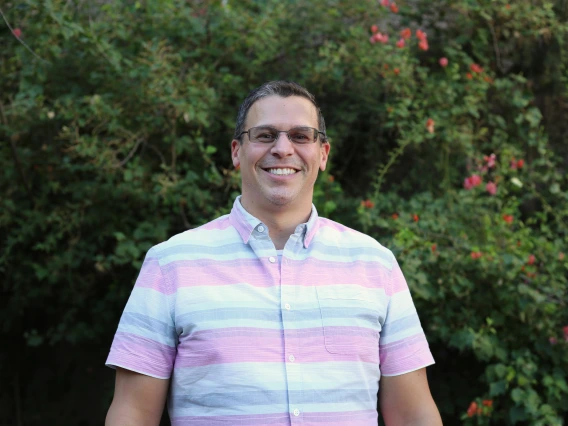
Denis M. Provencher has been awarded a research chair for fall 2021 by the Université d’Ottawa, where he will conduct research on the queer immigrant Francophone community in Canada.
Provencher, Professor and head of the University of Arizona Department of French and Italian, says the Francophone Mobility Chair will be the start of a new study, “La diaspora queer et francophone au Canada” (Queer and Francophone Diaspora in Canada), and book project that analyzes layers of identity: language, religion, sexuality, race and nationality.
The Chaire mobilité francophone, or Francophone Mobility Chairs, are awarded to international scholars specializing in Francophone studies. In addition to fieldwork, Provencher will work directly with faculty, students, and staff at U Ottawa who are interested in these topics, participating in seminars and conferences on campus.
Provencher will spend the fellowship working in Ottawa and Montréal, conducting content analysis of artwork and interviews with Franco-Ontarian and Québécois writers, artists and activists who are part of intersecting minority communities: queer, immigrant and people of color. The project is rooted in linguistic anthropology, incorporating sociology, linguistics, communication, gender and women’s studies, and art.
“There’s a fluidity in terms of the use of language in Québec and how that makes you think about different communities. Most people in Montréal code switch between French and English quite easily,” he says. “There’s a notion of flexible accumulation of language across cultures. We’re not just talking about vocabulary, but the way we think about the world.”
Provencher has spent the last 20 years working on France, culminating with 2017’s award-winning book Queer Maghrebi French: Language, Temporalities, Transfiliations, and says that background will inform his new book on Queer Québec.
“My last book dealt with issues of transnationalism and globalization and how migrants pick up pieces of language and different pieces of culture as they cross borders,” he says. “We need to stop thinking in binary terms, like an immigrant was in a home country and now they’re here and integrated. Transnationalism and globalization disrupt the notion of homeland but also notions of monolingualism and arrival.”
In Ottawa and Montréal, Provencher will interview immigrants and first-generation Canadians from immigrant families, particularly those from French-speaking areas in Africa and the Caribbean. In Ontario, about 35 percent of francophones born outside Canada were born in Africa, while more than 200,000 immigrants living in Québec are from Haiti, Morocco and Algeria alone.
“For me, Québec is an interesting middle ground between the U.S. and France. Québec and Canada have the social net that the U.S. doesn’t and France does. The particularities of Québec that make it a welcome place have a lot to do with secularism and the quiet revolution of the 1960s, which was part of the language politics and a push against monolingualism,” he says.
Provencher has already published on the artist 2Fik, who was born in Paris to a Moroccan Muslim family and moved to Montréal in 2003. An artist and activist whose work deals with multifaceted expressions of identity, 2Fik makes for a fitting prologue chapter to Provencher’s new book.
“When I first met him, he was going back and forth between France and Quebec and working on a couple different characters. It eventually expanded to the whole range of characters, these hybrid identities that cut across all kinds of categories,” Provencher says.
In a new project, 2Fik reinterprets La chasse-galerie (the flying canoe) is a well-known Québécois folktale about a group of lumberjacks who make a pact with the devil. And as a folk tale of the New World, it represents a very similar sort of movement to contemporary immigration.
“He takes this French-Canadian story and makes it his own. 2Fik has a French-Muslim tradition and used the veil in a lot of his performance art, but now he’s using the woodsman and boat travelers in his work. He’s using images that link him to other communities,” Provencher says. “His work becomes more universal in that there’s something in it for everyone and they’ll going to recognize themselves through pieces of that story or snippets of language.”

